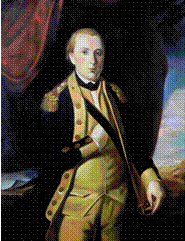|
In 1789,
King Louis XVI decided to place a tax on land, an idea that the nobility and
the Church—who had both been exempt from taxation up to this time—greatly
disliked. They fought Louis by claiming that a new tax could only be approved
at a meeting of a body known as the Estates General, which represented all
three of France’s social “estates”: the Church, the nobility, and the rest of
the population. The Third Estate, which made up 98% of France’s population,
had become increasingly dissatisfied with its lack of political power.
Middle-class citizens at this time functioned more or less as the leaders of
the Third Estate, and had been influenced by Enlightenment ideas regarding
things like liberty, equality, and rights. They had come to want a voice in
government, and at the meeting of the Estates General, they demanded a
constitution in return for approving the tax. A chain of events was set in
motion that eventually led to the overthrow and execution of the king: this
was the French Revolution.
|





